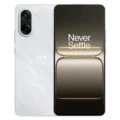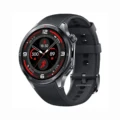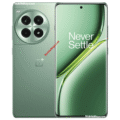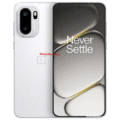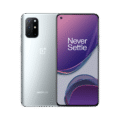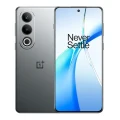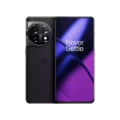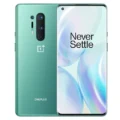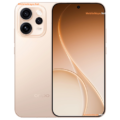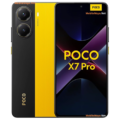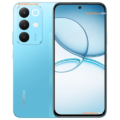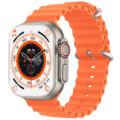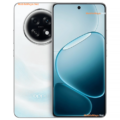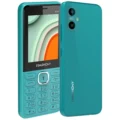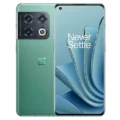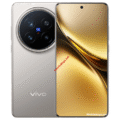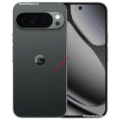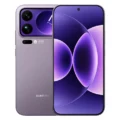Price List: Under Tk.5,000 | Tk.5001-10000 | Tk.10001-15000 | Tk.15001-20000 | Tk.20001-30000 | Tk.30001-40000 | More Mobiles
- Home
- All Mobile
- OnePlus
- Oneplus 7
Oneplus 7
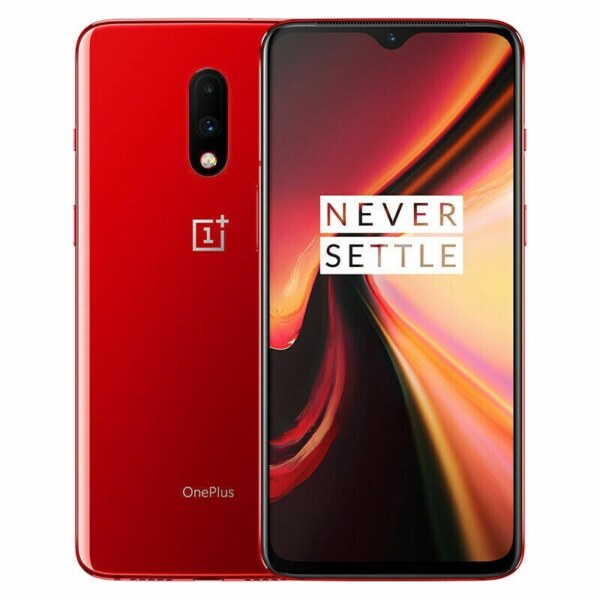

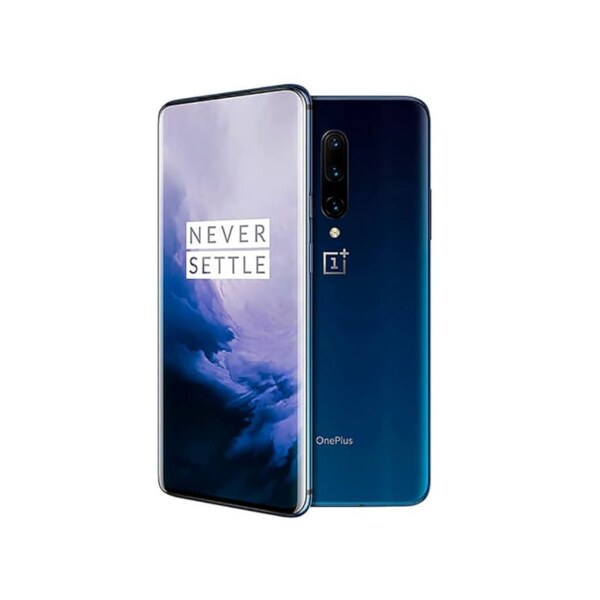
Specifications
Price in Bangladesh
| Official | 8GB 256GB ৳49,000 / 12GB 256GB ৳55,000 |
| Unofficial Unofficial prices and phones are available only non authorized shops. The device does not come with an official warranty in Bangladesh. | 8GB 256GB ৳32,000 / 12GB 256GB ৳44,000 |
General
| Device Type | Smartphone |
| Model | GM1901, GM1900, GM1905, GM1903 |
| Announced | May, 2026 |
| Released | June, 2026 |
| Status | Available |
Hardware & Software
| Operating System OS => Every computer system run on a base software called Operating System (OS). Operating System controls all basic operations of the computer (such as smartphone, PDAs, tablet computers and other handheld devices). The Operating System allows the user to install and run third party applications (apps), apps are used to add new functionality to the device. | Android |
| OS Version | v9.0 |
| User Interface UI or user interface of a device is the look and feel of the on-screen menu system. How it works, its color scheme, how it responds to button presses, all of these things are part of the user interface. | Oxygen OS |
| Chipset Chipset is a group of integrated circuits designed to perform one or a more dedicated functions, often with real time computing constraints, Popular smartphones are equipped with more advanced embedded chipsets that can do many different tasks depending on their programming. | Qualcomm Snapdragon 855 |
| CPU CPU (Central Processing Unit) mostly known as processors, CPU processes instructions in order to carry out certain functions that make your device operate properly. Processors are often described as the brain of computers, smartphones and tablets, Smartphones and tablets rely on processors to carry out their every task, Processors are an incredibly important factor in selecting any type of computing device, including your smartphone. | Octa core (2.84 GHz, Single core, Kryo 485 + 2.42 GHz, Tri core, Kryo 485 + 1.8 GHz, Quad core, Kryo 485) |
| CPU Cores | 8 Cores |
| Architecture | 64 bit |
| Fabrication | 7 nm |
| GPU GPU (Graphics Processing Unit) is a single-chip processor designed to rapidly manipulate and alter memory to accelerate the creation of images in a frame buffer intended for output to a display, This includes things such as lighting effects, object transformations, and 3D motion. | Adreno 640 |
| RAM (Memory) RAM (Random Access Memory) is a type of computer memory that can be accessed randomly, any byte of memory can be accessed without touching the preceding bytes that allows information to be stored and accessed quickly from random locations. RAM is the most common type of memory found in computer systems, smartphones, tablets and other electronic devices. | 6 GB, 8 GB |
Design
| Dimensions | 157.7 x 74.8 x 8.2 mm (6.21 x 2.94 x 0.32 in) |
| Weight | 182 g (6.42 oz) |
| Colors |
Mirror Gray, Red, Mirror Blue |
| Build Material | Glass front (Gorilla Glass 6), glass back (Gorilla Glass 5), aluminum frame |
Display
| Display Type Display Technology => A number of display technologies and types used in mobile phones => TFT (Thin Film Transistor), IPS (In-Place Switching), OLED (Organic Light Emitting Diode), AMOLED (Active-Matrix Organic Light-Emitting Diode), Super AMOLED (an even advanced version of AMOLED), Resistive Touchscreen (Resistive touchscreens contain two layer of conductive material with a very small gap between them which acts as a resistance), Capacitive Touchsceen (Capacitive touchscreen technology consists of a layer of glass coated with a transparent conductor) | Optic AMOLED |
| Size | 6.41 inches (16.28 cm) |
| Resolution | 1080x2340 px (FHD+) |
| Aspect Ratio | 19.5:9 |
| Pixel Density Pixel Density (PPI) is refers to the concentration of pixels on a particular display, measured in pixels per inch (ppi). Pixel density is calculated by dividing the diagonal pixel resolution of a display by its diagonal size, higher pixel density better display quality. | 402 ppi |
| Screen to Body Ratio | 85.32 % |
| Touch Screen | Capacitive Touchscreen, Multi-touch |
| Refresh Rate | 60 Hz |
| HDR 10 / HDR+ support |
Rear Camera
| Camera Setup | Dual |
| Main Camera | 48 MP |
| Second Camera | 5MP |
| Sensors Sensors are electronic components that detects and responds to some type of input from the physical environment. The specific input could be light, heat, motion, moisture, pressure and location, The output is generally a signal that is converted to use in computing systems, a location sensor, such as a GPS receiver is able to detect current location of your electronic device. |
IMX586, Exmor-RS CMOS Sensor |
| Autofocus | Contrast Detection autofocus |
| OIS | |
| Flash Flash Light => There is commonly two types of flash lights are used in camera mobile phones, LED Flash (LED flash offers lower power consumption with drive circuitry that takes up very little room, LEDs can be strobed faster than any other light source), Xenon Flash (xenon flash produces an extremely intense full-spectrum white light for a very short duration) | Dual LED Flash |
| Image | 8000 x 6000 Pixels |
| Settings | Exposure compensation, ISO control |
| Zoom | 2 x Digital Zoom |
| Shooting Modes | Continuous Shooting, High Dynamic Range mode (HDR) |
| Aperture | f/1.7 |
| Camera Features |
Auto Flash, Face detection, Touch to focus |
| Video | 2160p@30/60fps, 1080p@30/60/240fps, 720p@480fps, Auto HDR, gyro-EIS |
| Video Recording Features | 3840x2160, 1920x1080, 1280x720 |
| Video FPS | 480 fps |
Front Camera
| Camera Setup | Single |
| Secondary |
16 MP, f/2.0, 25mm (wide), 1/3.1", 1.0µm |
| Flash Flash Light => There is commonly two types of flash lights are used in camera mobile phones, LED Flash (LED flash offers lower power consumption with drive circuitry that takes up very little room, LEDs can be strobed faster than any other light source), Xenon Flash (xenon flash produces an extremely intense full-spectrum white light for a very short duration) | Screen flash |
| Aperture | f/2.0 |
| Camera Features |
Fixed Focus |
| Video | 1080p@30fps |
| Video FPS | 30 fps |
Battery
| Battery Type Battery Type => Cell phones run on various kinds of batteries depending on the manufacturer, phone size or shape and features. There are basically four types of cell phone batteries => Lithium Polymer, Lithium Ion, Nickel Metal Hydride and Nickel Cadmium. | Li-Ion (Lithium Ion) |
| Placement | Non-removable |
| Capacity Battery Capacity is a measure (typically in Amp-hr) of the charge stored by the battery, and is determined by the mass of active material contained in the battery. The battery capacity represents the maximum amount of energy that can be extracted from the battery under certain conditions. | 3700 mAh |
| Quick Charging | 20W wired Dash: 50 % in 30 minutes |
| USB Type-C | USB Type-C 3.1 |
Storage
| Storage Type | UFS 3.0 |
| Storage Capacity | 128 GB, 256 GB |
| USB OTG |
Network
| 2G Network |
GSM 850 / 900 / 1800 / 1900 |
| 3G Network |
HSDPA 800 / 850 / 900 / 1700(AWS) / 1800 / 1900 / 2100 |
| 4G Network |
1, 2, 3, 4, 5, 7, 8, 12, 13, 17, 18, 19, 20, 26, 28, 29, 32, 34, 38, 39, 40, 41 |
| SIM SIM (Subscriber Identity Module) is a small card that contains mobile network subscriber's account information. This allows the phone using the card to attach to a mobile network. The SIM card is most commonly associated with GSM and UMTS mobile networks. Moving a SIM card from one phone to another allows a subscriber to switch mobile phones without having to contact their mobile network carrier. SIM cards can also be used by a phone to store limited amounts of data, such as phone numbers and text messages. | Standard SIM |
Data
| GPRS GPRS (General Packet Radio Service) is a packet oriented mobile data service on the 2G and 3G cellular communication system's global system for mobile communications (GSM), Generally, GPRS is used for the purpose of wireless data transfer, such as sharing pictures and videos or browsing the Internet via a mobile phone connection. | |
| EDGE EDGE (Enhanced Data GSM Environment) is a wireless network technology generally considered the next step in the 2G network offers data transfer rates up to four times faster than ordinary GSM networks, Generally, EDGE is used for the purpose of wireless data transfer, such as sharing pictures and videos or browsing the Internet via a mobile phone connection. | |
| Speed | HSPA 42.2/5.76 Mbps, LTE (5CA) Cat16 1024/150 Mbps |
| Web Browser Web Browser => a web browser is a software application used to locate, retrieve and display content on the World Wide Web, including Web pages, images, video and other files, The primary function of a web browser is to render HTML, the code used to design or markup webpages. | HTML5 |
Messaging
| SMS SMS (Short Messaging Service) is a text messaging service component of phone, Web, or mobile communication systems. It uses standardized communications protocols to allow mobile phone devices to exchange short text messages over the networks. | Yes |
| MMS MMS (Multimedia Messaging Service) is a standard way to send messages that include multimedia content (audio clips, video clips and images) to and from mobile phones over wireless networks using the WAP protocol. | |
| Email Email (Electronic Mail) is a system for receiving, sending, and storing electronic messages, Similar to a letter, email is text messages that may contain files, images, or other attachments sent via the internet to a recipient by using applications and software prograps. An email address is required to receive email, and that address is unique to the user. | Yes |
| IM IM (Instant Messaging) is an exchange of text messages through a software application, it enable you to create a kind of private chat room with another individual in order to communicate in real time over the Internet. | Yes |
Connectivity
| Bluetooth Bluetooth is a wireless communications technology for exchanging data between mobile phones, headsets, computers and other network devices over short distances without wires, Bluetooth technology was primarily designed to support simple wireless networking of personal consumer devices. | 5.0, A2DP, LE, aptX HD |
| Wi-fi Hotspot | |
| Infrared Infrared connectivity is an old wireless technology used to connect two electronic devices. It uses a beam of infrared light to transmit information and so requires direct line of sight and operates only at close range. | |
| USB | USB Type-C 3.1, OTG |
| GPS GPS The Global Positioning System is a satellite-based radio navigation system, GPS permits users to determine their position, velocity and the time 24 hours a day, in all weather, anywhere in the world, In order to locate your position, your device or GPS receiver must have a clear view of the sky. | GPS (L1+L5), GLONASS (G1), BDS (B1), GALILEO (E1+E5a) |
| NFC NFC (Near field communication) is a set of standards for smartphones and similar devices to establish peer-to-peer radio communications with each other by touching them together or bringing them into proximity, usually no more than a few inches. |
Media
| FM Radio | No |
| Alert Types | Vibration, MP3, WAV ringtones |
| Loudspeaker | Yes, with stereo speakers |
| 3.5mm Jack | No |
| Audio Jack | USB Type-C |
Sensors & Security
| Fingerprint Sensor | |
| Fingerprint Sensor Position | On-screen |
| Light Sensor | Light sensor, Proximity sensor, Accelerometer, Compass, Gyroscope |
| Face Unlock | Yes |
More
| Made By | China |
Performance Tests
| AnTuTu | 367812 (v7) |
| GeekBench | 11075 (v4.4) |
| GFXBench | 36fps (ES 3.1 onscreen) |
| Display | 642 nits max brightness (measured) |
| Loudspeaker | Voice 68dB / Noise 73dB / Ring 82dB |
| Battery (old) | Endurance rating 102h |
PROS
- Premium glass and metal build
- Bright, vibrant AMOLED display
- Powerful Snapdragon 855 chipset
- UFS 3.0 storage for faster access
- Dual stereo speakers
- Reliable camera with 4K video
- Fast and clean OxygenOS
CONS
- No high refresh rate display
- Lacks wireless charging
- No water resistance certification
- No 3.5mm headphone jack
- No expandable storage
- Only 60Hz screen refresh rate
OnePlus 7 Price in Bangladesh
The OnePlus 7 is priced at ৳49,000 for the 8GB+256GB official variant, while the 12GB+256GB official version is available for ৳55,000. Unofficially, you can grab the 8GB variant for around ৳32,000, and the 12GB version for ৳44,000.
The OnePlus 7 is a flagship-level smartphone from 2019 that still holds strong with its premium design, vibrant Optic AMOLED display, powerful Snapdragon 855 processor, and reliable camera setup. It’s a performance-centric device that also impresses with fast charging, fluid software, and UFS 3.0 storage. Though it’s missing features like a high refresh rate or wireless charging, the device offers solid value—especially if you’re buying at an unofficial price.
Price & Variants
| RAM & Storage | Price (BDT) | Status |
|---|---|---|
| 8GB + 256GB | ৳49,000 | Official |
| 12GB + 256GB | ৳55,000 | Official |
| 8GB + 256GB | ৳32,000 | Unofficial |
| 12GB + 256GB | ৳44,000 | Unofficial |
OnePlus 7 Specifications
The OnePlus 7 is a premium smartphone from OnePlus, launched in June 2019. It offers flagship-grade performance, a sleek design, and fast software experience, powered by the Snapdragon 855 chipset and Android 9.0 with OxygenOS.
| Feature | Details |
|---|---|
| Model Name | OnePlus 7 (GM1901, GM1900, GM1905, GM1903) |
| Release Date | June 2019 |
| Market Availability | Available |
| Official Price | ৳49,000 (8+256GB) / ৳55,000 (12+256GB) |
| RAM & Storage | 6GB/128GB, 8GB/256GB, 12GB/256GB |
Display and Design
The OnePlus 7 features a 6.41-inch Optic AMOLED display with a 1080 x 2340 (FHD+) resolution and a 19.5:9 aspect ratio. While the refresh rate is a standard 60Hz, the screen delivers excellent colors, deep blacks, and HDR10 support. The Gorilla Glass 6 front and Gorilla Glass 5 back give it a premium in-hand feel, with an aluminum frame for added durability.
At 182g and just 8.2mm thick, it feels sleek and comfortable. Available colors include Mirror Gray, Red, and Mirror Blue, adding a touch of boldness to its clean design.
Performance and Processor
Under the hood, the OnePlus 7 is powered by the Qualcomm Snapdragon 855 chipset, built on a 7nm process, paired with Adreno 640 GPU. This setup delivers outstanding performance in everyday use, heavy multitasking, and gaming.
The device comes in 6GB, 8GB, and 12GB RAM options with UFS 3.0 storage (128GB/256GB), ensuring faster read/write speeds and app load times. While there’s no microSD card slot, the storage capacities are generous enough for most users.
Camera and Video
The rear camera setup includes a 48MP Sony IMX586 primary sensor with f/1.7 aperture and a 5MP depth sensor for portraits. It supports dual LED flash, HDR, and OIS, enabling detailed photos even in low light.
Video recording is another strong point, offering:
- 4K at 30/60fps
- 1080p at 30/60/240fps
- 720p at 480fps
- Features like gyro-EIS and Auto HDR
The front-facing camera is a 16MP sensor (f/2.0) that supports 1080p@30fps video, ideal for selfies and video calls.
Battery and Charging
The OnePlus 7 houses a 3700mAh non-removable Li-Ion battery. It supports 20W Dash Charge, which can refill about 50% in 30 minutes—great for quick top-ups.
Battery life is decent with a reported 102h endurance rating, enough for a full day of regular usage.
Connectivity and 5G Support
While the OnePlus 7 does not support 5G, it includes solid 4G LTE coverage with global bands. Other connectivity features:
- Dual SIM support
- Bluetooth 5.0 with aptX HD
- Wi-Fi a/b/g/n/ac
- USB Type-C 3.1 with OTG
- GPS, GLONASS, BDS, GALILEO
- NFC support
Additional Features
The device includes an in-display fingerprint sensor and supports Face Unlock. Other sensors: accelerometer, gyroscope, proximity sensor, compass, and ambient light sensor.
Software-wise, it runs Android 9.0 Pie with the fast and clean OxygenOS UI, offering minimal bloat and smooth navigation.
Other highlights:
- Stereo speakers
- No 3.5mm headphone jack
- No wireless charging or water resistance
Reason to Buy
- Flagship-level performance with Snapdragon 855
- Sleek and durable design with Gorilla Glass
- UFS 3.0 storage ensures blazing speed
- Excellent AMOLED display with HDR10
- Capable camera system with 4K video recording
- Stereo speakers for immersive sound
- Fast Dash Charge with 3700mAh battery
- OxygenOS offers near-stock, fluid Android experience
Verdict
If you’re looking for a budget-friendly flagship with solid performance, premium design, and fast software, the OnePlus 7 still holds its ground in 2025. Though it lacks modern features like a 90Hz display or wireless charging, it excels where it matters—speed, style, and simplicity.
It’s ideal for power users, content consumers, and anyone who values speed and clean software without overspending.
FAQ
Q: Does the OnePlus 7 support 5G?
A: No, the OnePlus 7 supports up to 4G LTE only.
Q: Is the OnePlus 7 good for gaming?
A: Yes. With Snapdragon 855 and Adreno 640 GPU, it can handle most modern games smoothly.
Q: Can I expand storage via microSD?
A: No, there is no microSD card slot, but it comes with fast UFS 3.0 storage.
Q: Does the OnePlus 7 have a headphone jack?
A: No, it uses USB Type-C audio.
Q: What Android version does it run?
A: It launched with Android 9.0 Pie and can be upgraded depending on regional support.
Alternatives to OnePlus 7
Here are some current alternatives to consider in 2025:
- Poco F6 – Offers Snapdragon 8 Gen 2 and 120Hz AMOLED at a mid-range price.
- Samsung Galaxy A55 – Great display, One UI experience, and camera versatility.
- Nothing Phone (2a) – Unique design, clean software, and solid mid-range specs.
- Realme GT Neo 6 SE – For those who want flagship-like speed and charging on a budget.
User Reviews
Disclaimer Note
We do not guarantee that the information of this page is 100% accurate and up to date.

